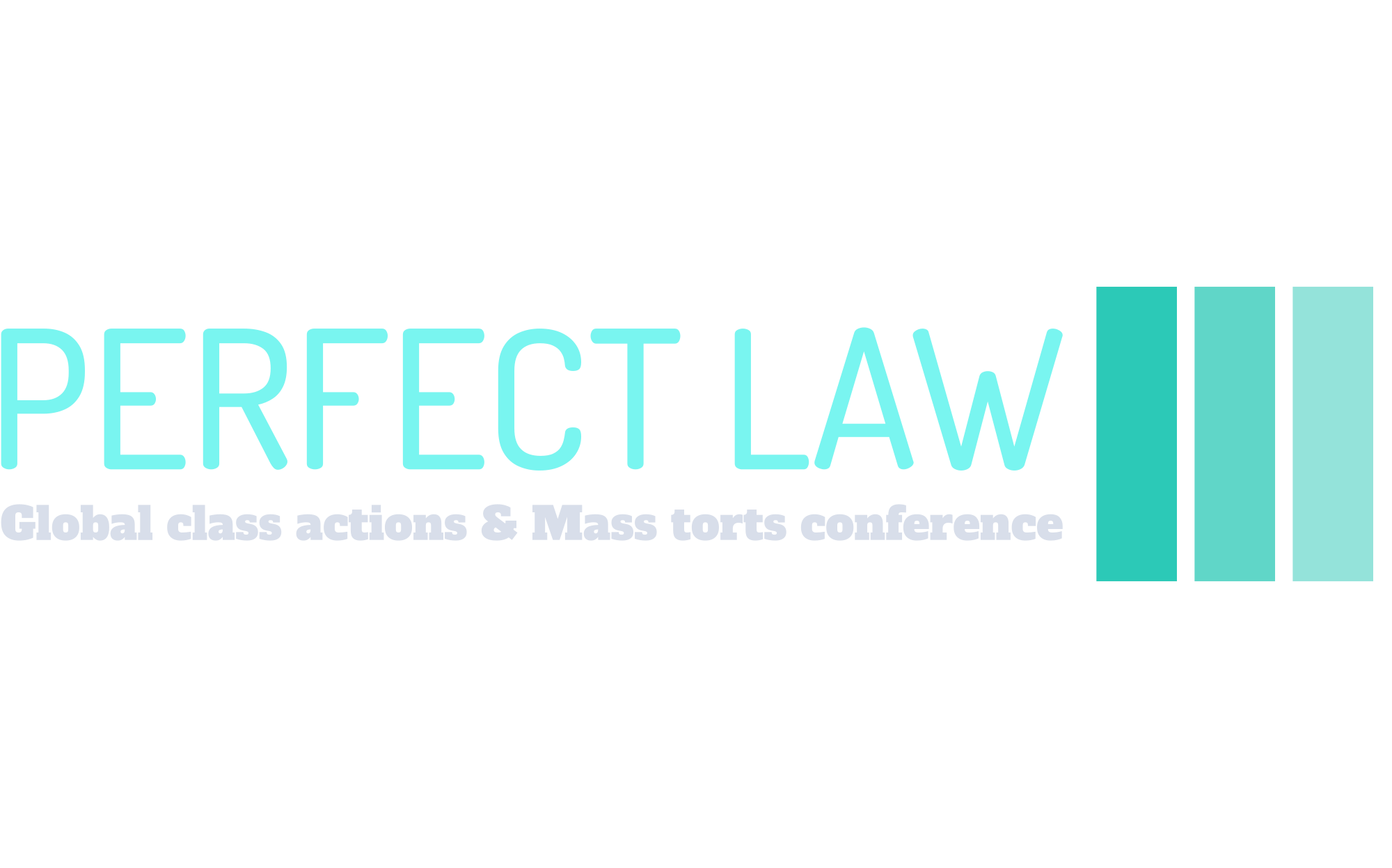For anyone with only a fleeting interest in European collective action mechanisms, it might come as a surprise that Portugal, of all places, already offers one of the most progressive mechanisms of the European Union. Since 1995, the Popular Action Act[1] has allowed for opt-out actions on behalf of “diffuse interests” brought by affected citizens, local authorities, or specialised bodies such as consumer protection organisations.
Now, almost three decades later, Portugal is confronted with the task of implementing the European Union’s Representative Action Directive[2]. As a sprinkle of cinnamon on top of pastéis de nata, Portugal is using this opportunity to perfect its already progressive framework within the context of the new European requirements.
1. Precursors: The Popular Action Act of 1995 and the Private Enforcement Act of 2018
The right to a popular action was first guaranteed to Portuguese citizens in their 1976 Constitution and took almost twenty years to be implemented via the 1995 Popular Action Act. It was, however, only after a further twenty-plus years that the 2018 Private Enforcement Act[3] ultimately helped to overcome the cultural and structural inertia that stood in the way of bringing such claims before Portuguese courts.
The Private Enforcement Act transposed Directive 2014/104/EU,[4] which governs actions for damages for infringement of national and European competition law. Art. 19 of the Private Enforcement Act enables consumer protection bodies and business organisations to bring opt-out popular actions claiming damages stemming from competition law infringements. Aggregate damages and the possibility to tap into unclaimed compensation to cover the costs incurred by the claimant in connection with the claim round out the new regime.
The opportunities offered by the Private Enforcement Act did not go unnoticed. Since 2020, over a hundred popular actions have been brought by various consumer protection organisations with the help of entrepreneurial lawyers and third-party funders against large companies such as Google, Apple, and TikTok. Such claims have frequently been filed as follow-on actions after European competition authorities concluded that the companies violated competition law to the detriment of consumers.
So far, no major judgments or settlements have become known, and as in other jurisdictions, nearly every aspect of the new regime is being fiercely contested by the defendants. Such challenges include the role of the funder and its remuneration, with defendants even questioning the constitutionality of third-party funding before Portuguese Courts.
2. The draft proposal
Many of the questions left open by the Private Enforcement Act and the Popular Action Act will likely be addressed in the implementation of the Representative Action Directive. In this regard, Portugal (like most of the other Member States) is quite late to the party, with a first proposal for a new “Consumer Collective Action Act” (the “Proposal”) introduced in Parliament only on 2 June 2023. The legislative procedure is expected to be completed after the autumn recess.
By and large, the proposed Portuguese implementation remains faithful to the Representative Action Directive, building on the foundations of the 1995 Popular Action Act. Collective actions against the infringement of the rights and interests of consumers can be brought by ‘qualified entities’ from other Member States (cross-border collective actions) as well as by associations, foundations, and local authorities on the domestic level. It is not necessary that those associations or foundations have a ‘direct interest’ in the claim (Art. 5).
a) Legal standing
According to Art. 6 of the Proposal, collective actions brought by associations or foundations are only admissible if those organisations are incorporated as legal persons, their statutory purpose fits their claim, they do not exercise any kind of professional activity on the free market, they are independent and not influenced by non-consumer third parties, especially not by professionals with an economic interest in the action and, in case of third-party funding, have procedures in place that prevent the funder from influencing the action and that prevent conflicts of interest. This seems to be a toned-down version of Art. 4 of the Representative Action Directive.
Portuguese associations or foundations wishing to bring representative actions in other Member States as ‘qualified entities’ must adhere to the full catalogue of Art. 4 of the Representative Action (see Art. 7 of the Proposal). Interestingly, for the purpose of bringing transnational representative actions, both the Portuguese Public Prosecution Service and the Portuguese Consumer Agency are considered ‘qualified entities’ (Art. 7 para. 8 of the Proposal).
b) Third-party funding
As to the funding of collective actions by third parties, Art. 10 of the Proposal considerably expands the minimum requirements set forth in the Directive: Any claimant who brings a collective action with the financial support of a third party must provide a copy of the litigation funding agreement (“LFA”) to the court, along with a list of the sources of funds used to support the action. Since the defendant will also be entitled to examine the contents of the LFA, the law provides for the possibility of redaction of the ‘information necessary to guarantee the equality of arms between the parties’. Such redaction may be important, for example, to protect the claimant against a potential “reverse engineering” of its litigation strategy.
The independence of the claimant and the absence of any conflict of interest must be guaranteed under the LFA. For this purpose, the claimant is considered to be independent if it is solely responsible for the decisions to bring, withdraw or settle a collective action. Any clause which gives the funder a right to influence these decisions is considered void.
Contrary to, e.g., the German implementation of the Representative Action Directive, the Proposal does not impose a fixed cap on the funder’s fee. Instead, the fee must be fair and proportionate in light of the characteristics and risks of the collective action in question and the market value of the financing. Such fairness and proportionality are subject to the control of the competent court.
As prescribed in the Directive, collective actions funded either by a competitor of the defendant or an entity dependent on the defendant are inadmissible. If an LFA is in violation of Art. 10 of the proposal, the claimant may either reject or amend the LFA, under the risk of losing its legal standing in the specific collective action.
c) Representation
Regarding representation, Art. 12 of the Proposal does not change the opt-out nature of the Popular Action Act regime. Only consumers residing outside of Portugal have to explicitly opt in to join the action.
For consumers residing in Portugal, the Proposal makes reference to Art. 14 and 15 of the Popular Action Act, which allow consumers to opt-out after being publicly informed of the action within a time period set by the presiding judge, but no later than the conclusion of the evidence production phase.
d) Disclosure of evidence
The procedure governing the disclosure of additional evidence that is in the control of the defendant or a third-party largely follows Art. 18 of the Representative Action Directive, i.e., both claimants and defendants are allowed to request the production of evidence in the possession or control of the other party. Judges exert control over such requests by issuing orders after considering any proportionality and confidentiality concerns. Noncompliance with such an order and the destruction or concealment of evidence are subject to sanctions through procedural fines imposed by the presiding judge.
e) Limitation periods
The limitation periods in the Proposal mirror Art. 16 of the Representative Action Directive, with the filing of a collective action for injunction or compensatory relief interrupting the applicable limitation periods for the consumers represented in the action.
f) Distribution of damages and costs
Art. 16 of the Proposal deals with judgment in collective actions for damages, and the subsequent distribution of damages. Drawing from both the Private Enforcement and the Popular Action Acts, the Proposal establishes that the ruling on a popular action determines the criteria to a) identify consumers entitled to compensation and b) quantify individual damages. When all consumers cannot be individually identified, a global compensation is set by the judge. If such amounts, however, should prove insufficient to compensate the subsequently identified consumers, then the global compensation is distributed proportionately to the damage suffered by each consumer.
As to damages that may remain unclaimed by consumers within a set period, the Proposal establishes a priority order similar to Sec. 47C of the UK Competition Act 1998. First, as provided for in art. 19 (7) of the Private Enforcement Act, this residual is to be used to cover expenses and costs incurred by the claimant in bringing the collective action. Importantly, this explicitly includes the funder’s fees under the LFA, subject to the requirements of justice and proportionality in Art. 10 of the Proposal. Any remaining proceeds are to be shared between the Fund for the Promotion of Consumer Rights (60%), and the Institute for Financial Management and Justice Equipment (40%).
Conforming to Art. 12 of the Representative Actions Directive, individual consumers represented in a collective action will not bear the costs of the proceedings (Art. 18 of the Proposal).
3. Land Ahoy!
The fact that the Proposal does not stray too far from the Representative Actions Directive cannot be underestimated. While the Proposal does not (yet) address a few issues that are common to collective redress mechanisms, such as how courts should handle cases with competing representatives (“carriage disputes”), the Proposal certainly does not hinder the development of consumer collective redress in Portugal, unlike the proposals of some other EU jurisdictions implementing the Directive.
All in all, the Proposal seems to be a natural development of the early opt-out system inaugurated with the Popular Action Act as part of a broader path Portugal has taken with regard to collective redress. It will be interesting to see whether the implementation of the Representative Action Directive further cements Portugal’s status as a promising forum for large and complex collective litigation aiming to protect consumers’ rights.
Lucas Macedo[5] and Johannes Nickl[6]
[1] Law No. 83/95, of 31 August.
[2] Directive (EU) 2020/1828 of the European Parliament and of the Council of 25 November 2020 on representative actions for the protection of the collective interests of consumers and repealing Directive 2009/22/EC.
[3] Law No. 23/2018, of 5 June.
[4] Directive 2014/104/EU of the European Parliament and of the Council of 26 November 2014 on certain rules governing actions for damages under national law for infringements of the competition law provisions of the Member States and of the European Union.
[5] Senior Case Manager at the Swiss third-party funder Nivalion AG.
[6] Doctoral Candidate at Heidelberg University, Germany.
Foto Credit: wallpaperflare






